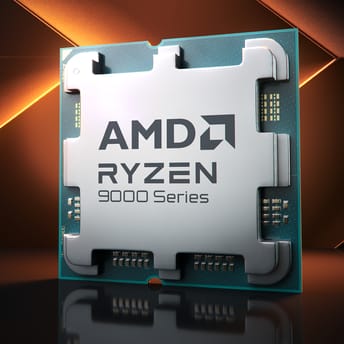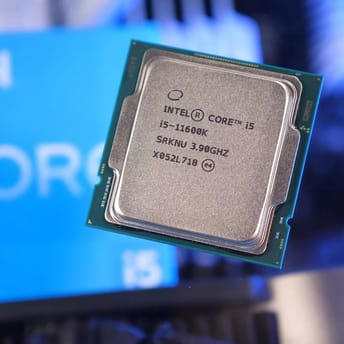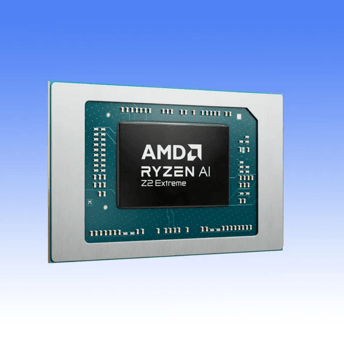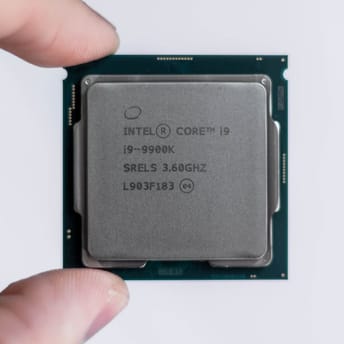Intel Lists Core i5-110, Legacy Comet Lake Budget Desktop CPU
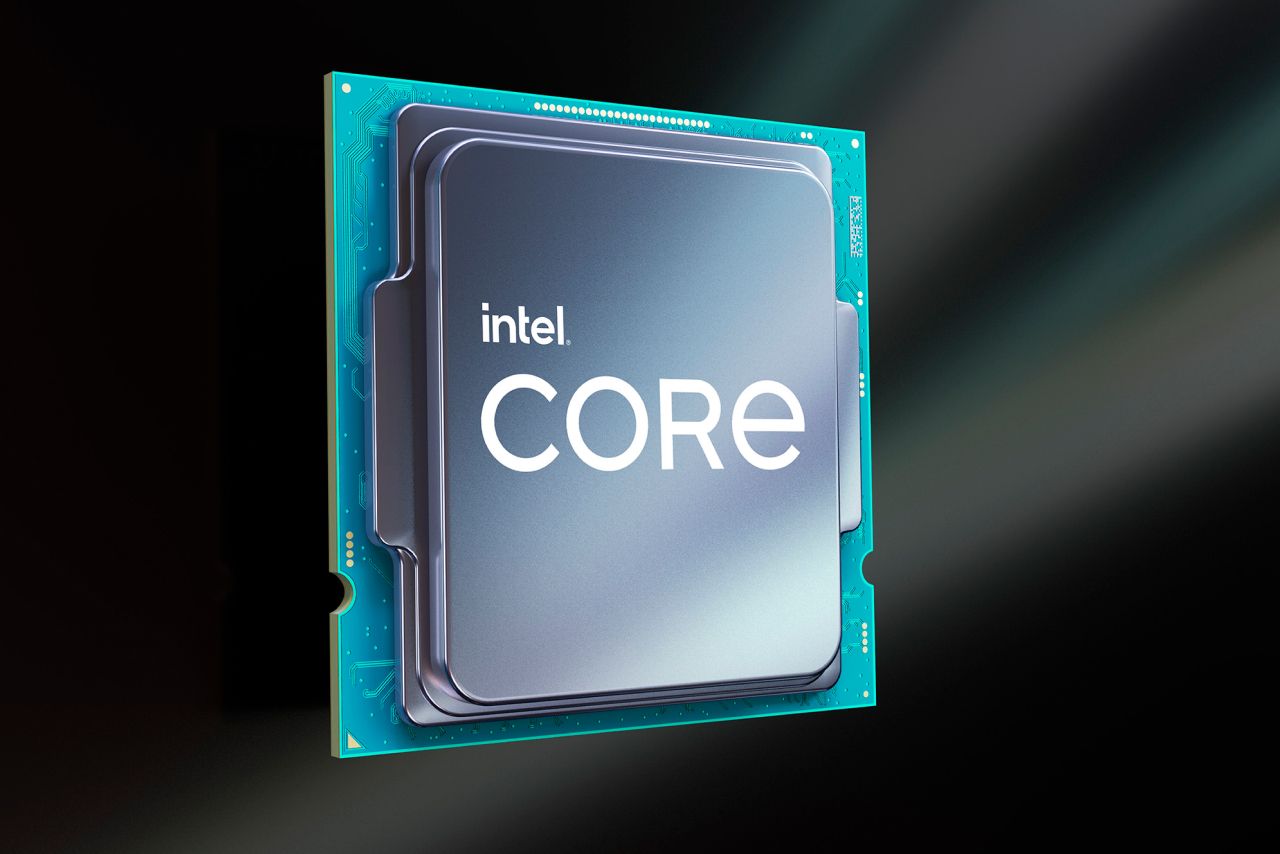
|
|
Key points
- Intel has added the Core i5-110 CPU on ARK with a Q3 2025 launch window and a $200 price.
- The specifications are entirely identical to the Core i5-10400 CPU.
- The chip fits for outdated DDR4-based LGA1200 desktops, not newer DDR5 platforms on LGA1700/LGA1851.
Intel quietly listed the Core i5-110 in the ARK database. It is a 6-core/12-thread Comet Lake CPU with a base frequency of 2.9 GHz and a turbo of up to 4.3 GHz, priced at $200 and launching in Q3 2025. The specification fully matches that of the Intel Core i5-10400 processor from 2020, effectively making the new CPU a refresh of the 5-year-old model.
Intel has added the Core i5-110 to its ARK database, spotted by momomo_us. It is a Comet Lake desktop CPU, built on a 14 nm process, for the LGA1200 socket, featuring six cores and twelve threads. The Intel’s page lists a Q3 2025 launch window and a recommended customer price of $200.
Key specifications:
- 6 cores and 12 threads.
- Base clock 2.9 GHz and turbo up to 4.30 GHz.
- 12 MB L3 cache.
- 65 W TDP.
- DDR4-2666 support for up to 128 GB in two channels.
- Integrated Intel UHD 630 graphics at 350 to 1100 MHz.
- PCIe 3.0 up to x16.
Compared with the 10th Gen Comet Lake Core i5-10400, the Core i5-110 CPU is effectively the same LGA1200 part. Core and thread count, clock frequency, cache, integrated graphics, and memory support are unchanged, and the chip still uses 14 nm and PCIe 3.0. In practice, this translates to a Comet Lake refresh for OEM desktops and drop-in replacements, rather than a new CPU for modern motherboards or contemporary gaming PC builds.
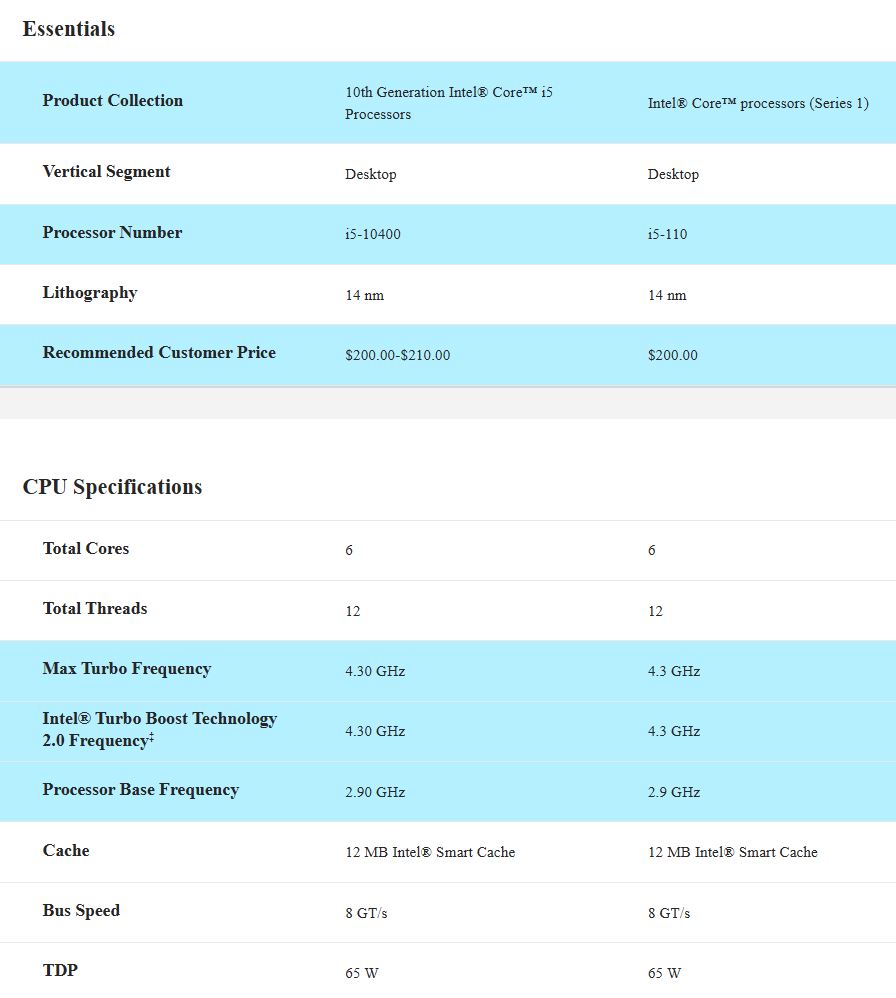
It is an odd launch because the Core i5-110 targets an end-of-life platform. Intel discontinued 10th-gen Comet Lake desktop chips in 2024, and the market has since moved to LGA1700 and now LGA1851, so new LGA1200 motherboards are limited mainly to remaining stock. At the same time, DDR4 RAM has become more expensive in 2025 due to supply cuts, with contract and spot prices rising sharply, even overtaking DDR5, which makes fresh budget builds on DDR4 less sensible.
Learn more about gaming PC RAM in our in-depth guide that covers DDR4 vs DDR5, speed and latency, XMP or EXPO profiles, and more. For processors, see our gaming CPU article, which explains how core and thread count, cache, and boost clocks affect frame rates, how to match a CPU to your GPU, and other helpful info.
